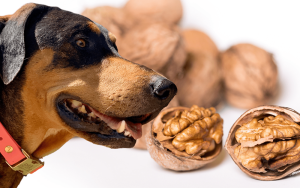Can Dogs Eat Oranges? A Complete Guide to Sharing Citrus with Your Furry Friend

As pet owners, we are always looking for healthy treats and snacks to give our dogs, and it’s no surprise that we sometimes want to share a juicy piece of fruit with our loyal companions. Oranges, with their sweet and tangy flavor, are a popular fruit
in many households. But as a responsible pet parent, you may find yourself wondering: Can dogs eat oranges? Are they safe for dogs, and if so, how much should you give them? In this article, we will explore everything you need to
know about feeding oranges to your dog, the potential health benefits, risks, and some expert recommendations.
Table of Contents
- Introduction: Oranges and Dogs – A Quick Overview
- Health Benefits of Oranges for Dogs
- Are Oranges Safe for Dogs? Understanding the Risks
- How to Safely Serve Oranges to Your Dog
- Can Dogs Eat Orange Peels?
- What Happens If Your Dog Eats Too Many Oranges?
- Alternative Citrus Fruits for Dogs
- Final Thoughts: Should You Feed Your Dog Oranges?
1. Introduction: Oranges and Dogs – A Quick Overview
Oranges are a citrus fruit widely known for their refreshing flavor and high vitamin C content. They are an excellent source of antioxidants and nutrients that benefit human health. But when it comes to dogs, it’s important to consider whether this fruit
is suitable for our canine companions. Some fruits are safe for dogs, while others may pose potential risks, such as toxicity or digestive issues.
So, can dogs eat oranges? The short answer is yes—dogs can eat oranges in moderation. However, there are important guidelines you need to follow to ensure the fruit is safe for your dog to consume. This article will delve into the pros
and cons of feeding oranges to your dog, along with practical tips for making the experience as safe and enjoyable as possible.
2. Health Benefits of Oranges for Dogs
Oranges are packed with nutrients that can benefit your dog’s health, but as with all treats, moderation is key. Here are some of the notable health benefits that oranges can offer:
Vitamin C Boost
Oranges are famously rich in vitamin C, which is crucial for maintaining a healthy immune system. While dogs can produce their own vitamin C, adding a small amount from fruits like oranges can provide a boost to your dog’s overall health, particularly
during times of stress or illness.
Antioxidants for a Healthy Coat
Oranges are full of antioxidants, including flavonoids and carotenoids, which help combat oxidative stress. These compounds may support your dog’s skin health and contribute to a shiny, healthy coat. The antioxidants in oranges also protect against chronic
diseases by reducing inflammation and improving cellular function.
Fiber for Digestive Health
Oranges contain dietary fiber, which is essential for promoting a healthy digestive system. Fiber aids in regulating your dog’s bowel movements, preventing constipation, and supporting overall gut health. A small slice of orange can be a natural way to
help your dog stay regular.
Low-Calorie Snack
If you’re looking for a healthy, low-calorie treat, oranges can be a good option. With relatively few calories, oranges are a satisfying snack for dogs without adding too much to their calorie intake. This can be particularly helpful if you’re trying
to manage your dog’s weight.
3. Are Oranges Safe for Dogs? Understanding the Risks
While oranges offer several health benefits, it’s important to understand the potential risks of feeding your dog this citrus fruit.
Sugar Content
Oranges are naturally high in sugars, which may cause digestive upset, especially in dogs with sensitive stomachs or those prone to obesity. Feeding your dog too many sugary foods can also contribute to weight gain, diabetes, and other health issues.
Citrus Oils
The peel of oranges, as well as the pith (the white, spongy part), contains essential oils that can cause stomach upset or even toxicity in large amounts. These oils can also lead to drooling, vomiting, and diarrhea in some dogs, particularly if consumed
in large quantities. It’s best to avoid feeding your dog the peel or the pith of the orange.
Acidity
Oranges are naturally acidic, which can sometimes cause digestive discomfort in dogs with sensitive stomachs. If your dog is prone to acid reflux, gastrointestinal issues, or has a history of pancreatitis, it’s a good idea to avoid giving them oranges
altogether.
4. How to Safely Serve Oranges to Your Dog
If you decide to share an orange with your dog, it’s important to serve it in a safe and controlled way. Here’s how you can do so:
Peel the Orange
Never feed your dog the orange peel, as it contains oils that can irritate their digestive system. Only offer the fleshy segments inside.
Remove the Seeds
Orange seeds, like those in many fruits, are a choking hazard and can also cause digestive issues. Be sure to remove all the seeds before serving the fruit to your dog.
Cut into Small Pieces
To make it easier for your dog to eat and to reduce the risk of choking, cut the orange into small, manageable pieces. Start with a small slice or two to see how your dog reacts.
Serve in Moderation
Since oranges are rich in sugar and acidity, it’s essential to only offer small portions to your dog. For small dogs, a single slice may be enough, while larger dogs can handle a couple of slices. Never feed them large amounts, as it can upset their stomach.
5. Can Dogs Eat Orange Peels?
As mentioned earlier, it is not recommended to feed dogs orange peels. The peel contains oils that can irritate your dog’s gastrointestinal system, potentially causing discomfort, vomiting, and diarrhea. In addition to this, orange peels are tough and
fibrous, which could cause choking if your dog tries to swallow large pieces.
If your dog accidentally consumes a small amount of peel, monitor them closely for any signs of distress. If they exhibit unusual symptoms such as excessive drooling, vomiting, or diarrhea, contact your veterinarian for advice.
6. What Happens If Your Dog Eats Too Many Oranges?
While a slice or two of orange is unlikely to harm your dog, overfeeding can lead to some unwanted side effects. Here are some potential issues that could arise if your dog eats too many oranges:
Digestive Upset
The high sugar and acidity levels in oranges may cause stomach upset, including diarrhea, gas, and bloating. This is especially true for dogs that are not used to citrus fruits or have sensitive stomachs.
Weight Gain
Oranges, though low in calories, still contain sugar. If you feed your dog too many oranges as snacks or treats, the added sugars can contribute to weight gain over time, particularly if you’re not adjusting their regular meals accordingly.
Diabetic Concerns
Dogs with diabetes should avoid sugary fruits like oranges, as they can cause a spike in blood sugar levels. Always consult your veterinarian before introducing any new food, especially if your dog has a pre-existing medical condition like diabetes.
7. Alternative Citrus Fruits for Dogs
If you’re looking to add variety to your dog’s fruit-based snacks, there are other citrus fruits to consider. Here are a few options:
Clementines
Clementines, which are similar to oranges but smaller and easier to peel, can be a good alternative for dogs. They are sweeter and often less acidic than traditional oranges, but they still contain sugars, so they should be fed in moderation.
Lemons
While lemons are more acidic than oranges and should be avoided in large amounts, a small amount of lemon zest or juice can be used as a flavoring for homemade dog treats. Avoid giving your dog lemon slices or the peel, as it can cause gastrointestinal
distress.
Limes
Like lemons, limes are more acidic and may cause digestive upset if given in large quantities. However, a small piece of lime or lime zest can be used as an occasional treat or flavoring, but it should never be fed in excess.
8. Final Thoughts: Should You Feed Your Dog Oranges?
In conclusion, dogs can eat oranges in moderation as long as you follow the necessary precautions. Oranges offer several health benefits, including vitamin C, antioxidants, and fiber, but they are also high in sugar and acidity, which
can cause digestive issues if consumed in excess. The key is to serve them as an occasional treat and avoid feeding your dog the peel or seeds. Always observe your dog for any signs of discomfort after introducing a new food and consult your veterinarian
if you have any concerns.
By serving oranges in small, manageable pieces, and ensuring they are free from the peel and seeds, you can safely share this refreshing fruit with your dog. However, remember that no treat should replace a balanced, nutritious dog diet, and always focus
on variety when selecting safe snacks for your canine companion.
Disclaimer: This article is for informational purposes only. If you have any concerns about your dog’s health or diet, always consult your veterinarian before introducing new foods.
By following these guidelines and considering your dog’s individual needs, you can make informed decisions about feeding oranges and other fruits to your beloved pet. Happy treating!






